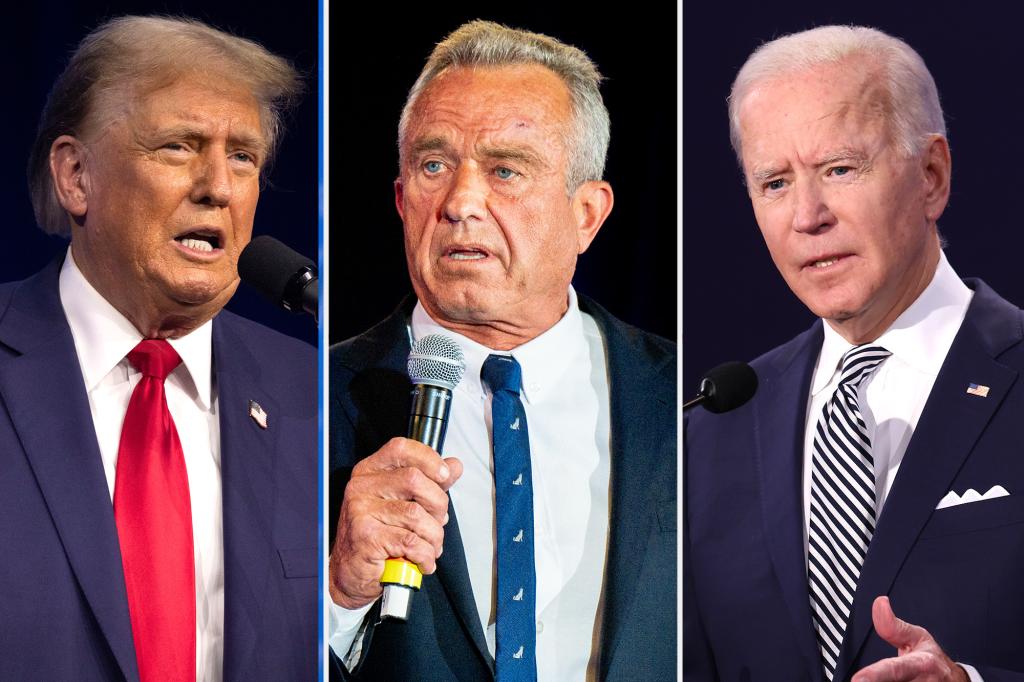Independent presidential candidate Robert F. Kennedy Jr. is reportedly not likely to meet the ballot access requirements needed to qualify for next week's debate between President Biden and former President Donald Trump.
Kennedy, 70, has long maintained he meets all the requirements to qualify for a presidential debate, including having his name appear on the ballot in enough states to have a mathematical chance of winning the electoral vote.
But a Washington Post survey of state election officials found that the independent candidate is not running in several states where he claims to be a candidate and would not meet the threshold needed to qualify for the June 27 CNN debate by Thursday's deadline.
The Kennedy campaign claims that “an aggressive voter access operation has crossed every milestone to ensure” that RFK Jr. appears on the ballot in all 50 states.
The campaign said Kennedy is “officially on the ballot in nine states – Utah, Michigan, California, Delaware, Oklahoma, Hawaii, Texas, South Carolina and Mississippi” and has “garnered enough signatures to appear on the ballot in 14 more states – New Hampshire, Nevada, North Carolina, Idaho, Iowa, Ohio, New Jersey, New York, Florida, Minnesota, Tennessee, Alaska, Washington and Nebraska.”
But The Washington Post found that election officials in only Utah, Delaware, Oklahoma, Michigan and Tennessee have acknowledged Kennedy's claim that his vote will officially appear on the November ballot.
CNN reported that Kennedy's endorsement also includes California and Hawaii.
This would give independent candidates 100 electoral votes, far short of the 270 needed to clinch victory in November's election.
A spokesman for the Kennedy campaign told The Washington Post that “at the end of the day,” RFK Jr. is currently eligible to receive more votes than Trump or Biden, because neither of the two major party candidates have been formally nominated at the upcoming Republican and Democratic national conventions.
“While the Washington Post notes that Kennedy is not on the ballot in enough states to meet CNN's requirements to appear in the June 27 debate, he is ultimately eligible to receive more electoral votes than both President Trump and President Biden, who have not yet been nominated by either party,” Kennedy campaign spokeswoman Stephanie Speer said in a statement.
The Kennedy campaign had previously accused CNN of “violating federal law” by not including RFK Jr. in the debate.
“[The Federal Election Commission] “The term 'presumptive candidate' is not included in the FEC debate rules,” CNN clarified. “Without using an objective standard, CNN is violating federal law because the debates would be treated as campaign contributions and subject to strict contribution limits,” Speer argued.
Kennedy also has yet to meet the CNN debate polling threshold, which requires a candidate to receive at least 15% support in four national polls.
According to NBC News, the independent candidate has 15% support in three polls so far.
Next week's debate will be the first of two scheduled showdowns between Biden and Trump.

